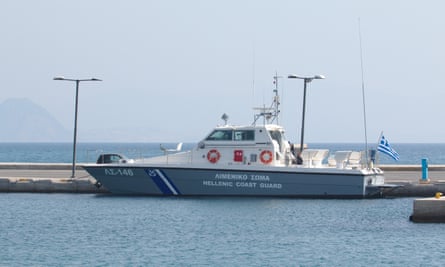A growing number of European leaders are expected to back calls for offshore immigration centres, as the EU casts around for tougher measures to stop asylum seekers reaching the bloc.
EU officials were preparing for intensive talks on migration at a leaders’ summit on Thursday, as it emerged that four people, including two toddlers, had died after falling overboard from an overcrowded speedboat off the Greek island of Kos.
After scouring the seas throughout the night, officials confirmed the fatalities on Wednesday, saying the two children, aged between two and four, and two women who died had been among a group of 31 people trying to reach Italy from the Turkish coast.
The coastguard said the driver of the power boat made “abrupt and dangerous moves” when the crew of a patrol vessel signalled it to stop. As a result, 10 of the speedboat’s passengers fell into the sea.
Of the 27 who survived, five children and a baby were taken to the Kos general hospital.
The latest tragedy occurred amid emerging consensus in the EU for tougher action to control the external border. Before the summit, the European Commission president, Ursula von der Leyen, called for exploration of “return hubs” outside the EU, citing a controversial deal between Italy and Albania as a possible model. A senior EU diplomat said it would have been unthinkable for the commission president to make such a proposal even one or two years ago, adding: “It is very preliminary but it shows that minds are changing.”

The Czech prime minister, Petr Fiala, also said the agreement, a major policy of his far-right Italian counterpart, Giorgia Meloni, could serve as a model for the EU. “It is important that this works out, because then we could work in a similar way with third parties,” he told reporters.
On Wednesday, 16 men – 10 from Bangladesh and six from Egypt – became the first people to be taken to Albania as part of the pact, arriving in the port of .
EU leaders will also discuss how to speed up the deportation of people denied asylum in the EU, as well as putting pressure on countries of origin, typically in Africa, the Middle East and Asia, to readmit their nationals in exchange for aid or trade deals.
A group of EU countries that favours “innovative solutions” – a catch-all term for ideas that may skirt or clash with international law – are to meet before the main summit of 27 leaders. That meeting, organised by Italy, Denmark and the Netherlands, is expected to draw about a dozen leaders. “It’s a very popular meeting,” said a second senior diplomat.
So far, EU sources have not specified which countries they think could host people trying to reach the EU. Albania has already ruled out replicating its agreement with Rome with other countries. When the EU explored “regional disembarkation platforms” in 2018 – migration centres outside the EU that were never fully defined – a series of north African countries declined to get involved.
EU sources have also not specified how return hubs may work, but say leaders will thrash out ideas on Thursday.
Migration will be “a major point of discussion”, Charles Michel, the European Council president, who will chair the talks, wrote in a letter to EU leaders. “We will have the opportunity to focus on concrete measures to prevent irregular migration including strengthened control of our external borders, enhanced partnerships and reinforced return policies.”
after newsletter promotion
Poland’s prime minister, Donald Tusk, will come to Brussels seeking support for his plan to rewrite the law on asylum, in the face of what Warsaw describes as a hybrid attack from Belarus and Russia. The Polish government has accused Minsk of encouraging thousands of people, mainly from the Middle East and Africa, to cross into Poland, even training them to “storm” the border.
A record 13,195 people have arrived at the EU’s eastern land border so far this year, an increase of 192%, according to statistics released by the EU border agency Frontex this week.
In April, the French president, Emmanuel Macron, sharply criticised asylum schemes whereby “you go and look for a third country, for example in Africa, and send our immigrants there”. Senior EU officials also criticised the previous UK government’s Rwanda scheme.
But there is growing interest in the EU for some kind of offshore centres – although their exact design has yet to be determined. Germany has moved in a more hawkish direction and is unlikely to oppose offshore schemes, a shift that could prove decisive.
On Monday, Greece’s deputy migration minister, Sofia Voultepsi, warned that while war and the climate crisis were increasing global displacement, an EU migration pact agreed earlier this year was so flawed that it had failed “in practical terms” to deal with the issue.
She told a conference in Athens: “We got the [agreement] but the basic piece is still missing: returns. We must have a common system for asylum, a common system for returns, and a common system for integration.”
Refugee solidarity workers said the loss of life was because of the lack of legal pathways Europe offered to desperate people fleeing war and persecution at a time of unprecedented strife and conflict.
“Yet again, the most vulnerable have died in our seas,” said Lefteris Papagiannakis who heads the Greek Council of Refugees, referring to the drownings off Kos. “And that’s because they are the victims of the continuing policies that ignore the possibility of legal pathways of migration. Conflicts are increasing; the numbers [trying to flee] will only increase.”
Source: theguardian.com


